Share
Working at ESO
Are you interested in working in areas of frontline technology and in a stimulating international environment? Do you feel your profile matches our requirements? Learn more about our current vacancies and apply online. Read more..
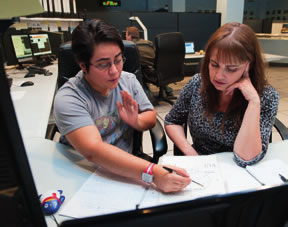
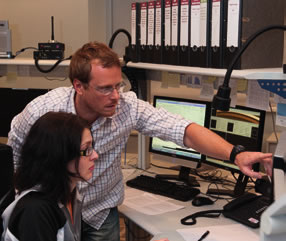

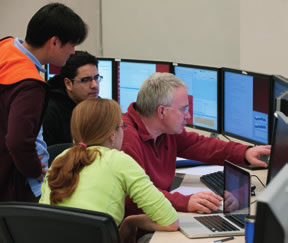
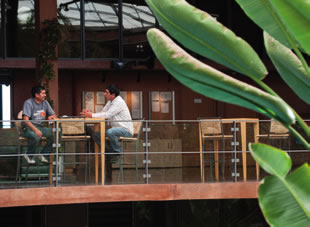
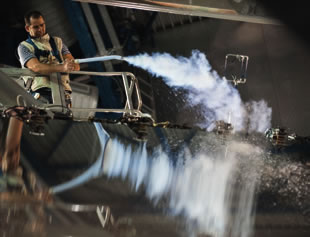
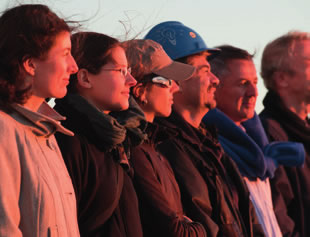
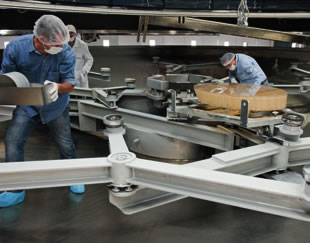
The European Organisation for Astronomical Research in the Southern Hemisphere (ESO) is the foremost intergovernmental astronomy organisation in Europe and the world's most productive ground-based astronomical observatory. ESO carries out an ambitious programme focused on the design, construction and operation of powerful ground-based observing facilities enabling astronomers to make important scientific discoveries.
ESO operates three unique world-class observing sites in northern Chile: La Silla, Paranal and Chajnantor (home to ALMA), and the ESO Headquarters are located in Garching, near Munich, Germany.
At Paranal, ESO operates the Very Large Telescope, the world's most advanced visible-light astronomical observatory, and will host and operate the southern array of the Cherenkov Telescope Array, the world's largest and most sensitive high energy gamma-ray observatory. ESO is a major partner in ALMA. On Cerro Armazones, ESO is building the 39-metre Extremely Large Telescope (ELT), which will become "the world's biggest eye on the sky" and whose operations will be fully integrated into the Paranal Observatory.
For its Maintenance, Support and Engineering department (MSE), ESO is inviting students from European and Chilean Universities in their career's last period, to participate in the following programme:
Winter Students 2025
Paranal
Deadline 30/05/2025
The MSE Department of the Paranal Observatory provides technical support to the four VLT 8-m telescopes, to the VLT Interferometer with its auxiliary telescopes and to all instruments available for scientific observations. The telescopes and instruments are complex systems that involve many advanced technologies and require a high level of engineering support. The MSE Department of Paranal has a total workforce of 80 engineers and technicians distributed in 6 engineering groups. The following are the three projects proposed for the Winter period 2025. They can start anytime between June and September 2025 and can last between three and six months depending on the topic and availability of the student. Please enquire if you are not sure.
The following are the three main projects planned for this year:
I. Recovery and Obsolescence Analysis of the AAS Test Bench
The primary mirror of the Paranal Unit Telescopes uses a lot of actuators to maintain the mirror in the proper optical shape. Those actuators need to be maintained regularly outside of the telescope. We have an AAS (Active Axial Support) test bench for maintenance purpose but it is not operational due to computer failures (Windows, Labview).
Objectives:
- Study and understand the test bench.
- Recover the test bench (approx. 3 months) to enable continuation of AAS reparations and certifications.
- Conduct a recovery campaign for defective AAS (approx. 3 months).
- Plan and execute actions to address obsolescence in both the AAS and the test bench.
Student Profile:
- PC hardware and software management and configuration.
- LabView.
- Electronics (microcontroller based, analog, digital).
Duration and Shift:
Three to six months. The schedule will be 8 days on-site followed by 6 days off-duty (8x6).
Duty Station:
Paranal Observatory located 120 km south of the city of Antofagasta, Chile.
II. Collaborative Development Environment for Instrument Templates
We are seeking a motivated student to help create a collaborative software development environment for the SPHERE and ERIS instruments at Paranal Observatory. This internship will integrate modern software engineering practices and AI-supported coding into operational workflows. The intern will contribute to establishing an interactive development platform involving astronomers, instrumentation engineers, and software developers. Your efforts will improve operational efficiency and foster innovation at one of the world's leading observatories.
Objectives:
- Establish collaborative, AI-supported software development environments for astronomical instruments.
- Implement and document advanced DevOps practices, including CI/CD.
- Provide training and resources to facilitate active participation of astronomers and engineers in software development tasks.
Student Profile:
We seek students ideally from areas such as Software Engineering, AI Engineering, Machine Learning. Candidates should have proficient knowledge of Python, version control, and familiarity with modern IDEs such as VSCode. Experience or interest in DevOps practices, CI/CD, and AI-assisted code generation is highly desirable.
Duration and Shift:
The position is expected to be hybrid, with on-site shifts at Paranal and remote work from either the Vitacura premises or home.
Duty Station:
Paranal Observatory located 120 km south of the city of Antofagasta, Chile.
III. Supporting the Astronomical Instrumentation at the Paranal Observatory
The Very Large Telescope (VLT) at Paranal is a flagship facility worldwide ground-based astronomy. It is one of the world's most advanced optical telescopes, consisting of four Unit Telescopes with main mirrors of 8.2m diameter, four movable 1.8m diameter Auxiliary Telescopes and 2 additional survey telescopes. These telescopes cater to a total of 17 instruments, all of them targeting cutting edge science cases. Keeping the instruments running at their best performance is of critical importance.
The student shall be integrated in instrumentation team of the Paranal observatory and shall contribute to diverse projects that have the potential to significantly improve the operational performance of several instruments such as: (1) development, test and implementation of a cryogenic temperature control system to improve the thermal stability of critical optical elements of the KMOS (K-band Multi Object Spectrograph) instrument, (2) improvement of the calibration process of the X-SHOOTER instrument (multi-wavelength medium resolution spectrograph) by developing a system that allows the extension of the lifetime of calibration lamps and the automation of the necessary flux adjustments, and, (3) study, preliminary assessment, and prototype of a distributed temperature sensing system to help detect leaks in cryogenic lines.
This an opportunity to learn and contribute to the operations of astronomical instrumentation in a unique hands on environment, developing skills in the field of instrumentation, remote control/data acquisition, data analysis and cryogenics.
Objectives:
Diverse projects to improve the performance of critical astronomical instruments at the Paranal observatory.
Student Profile:
- Engineer
- Astronomical instruments (at least at basic level)
- Electronics and Software (experience in control systems)
- Data gathering and analysis, modelling and simulation
Duration and Shift:
Six (6) months. The schedule will be 8 days on-site followed by 6 days off-duty (8x6).
Duty Station:
Paranal Observatory located 120 km south of the city of Antofagasta, Chile.
We Offer:
ESO offers a special allowance during the period you are performing your apprenticeship with us. For students travelling to the observatory, transportation arrangements (plane tickets) from and to Santiago will be provided by ESO, with accommodation provided on site.
Application:
We invite all students from European and Chilean Universities in their career's last period to apply. The apprenticeship should be supported by the University (Letter should be provided). If you are interested in working in areas of frontline technology and in a stimulating international environment, you are invited to apply online at http://recruitment.eso.org/.
Applications must be completed in English and should include a CV and a motivational letter indicating the project(s) you are interested in applying to.
For further information on Paranal Engineering apprenticeships, we invite you to take a look at the following page: http://www.eso.org/sci/facilities/paranal/paranalenginternship.html
Closing date for applications is 30 May 2025.
ESO Values
An important element in any successful employment relationship is harmony in values between an organisation and its people.
The ESO values are:
ESO strives for excellence through innovation.
ESO provides outstanding services to its communities.
ESO fosters diversity & inclusion.
ESO believes in the key role of sustainability for its future.
Achieving the above are recognized as only possible on the basis of personal values and attitudes that we expect from our employees: respect, integrity, accountability, commitment, collaboration, and clear & open communication.
Applicants to any ESO role are asked to reflect on their affinity with these values and advised they may be asked about them if called for interview.
Diversity
ESO has established diversity as an important value of the Organisation, is committed to providing an equal opportunities environment and is actively seeking to promote a diverse, equitable and inclusive workforce. Please visit https://www.eso.org/public/about-eso/sustainability/dei-at-eso/ for further details.
